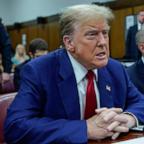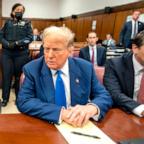What Egyptians Really Think of Rice's Trip
CAIRO, Egypt Oct. 4, 2006 — -- When asked what he thought about Secretary of State Condoleezza Rice's tour to the Middle East, Hussain Mohamed, a shopkeeper in a Cairo middle-class suburb, answered with an Egyptian aphorism: "When I hear what you say, I believe you, but when I see what you do, I am appalled."
Rice's visit to the region has not left many mixed feelings. What predominates is a distrust of what's seen as the U.S. neoconservative agenda.
The Egyptian press hasn't mustered much enthusiasm for the visit either. Few editorials commented on it, and those that did claimed it would not yield anything new as long as the U.S. administration believes only in safeguarding Israel's interests.
Opposition leaders and Islamists accused Rice of creating a new coalition that would lead to a new sectarian map in the Middle East.
Abdel Bari Atwan, editor in chief of the London-based newspaper Al-Quds Al-Arabi, wrote, "The U.S. wants to create a new alliance, 'Moderate States Union,' against the expected military confrontations with the 'Radical States Union,' that is, Iran, Syria, Hezbollah, Hamas and Jihad."
The long agenda of Rice's Middle East tour -- which includes efforts to stabilize Iraq, revive the deadlocked Arab-Israeli peace process, support for Palestininan President Abu Mazen and a discussion of threats to stability, such as Iran, Hamas and Hezbullah, along with the situation Darfur -- didn't impress the Arab street.
"Rice comes to the region only to rally Arab countries' support against Iran and the Palestinian resistance. The Americans are following the divide to rule policy," Said Khaled Yassin, a 43 year old Cairo lawyer, told ABC News.
"We Sunnis and Shiites have been long living in harmony. However, ever since the Americans came to Iraq the conflict rises. Now they talk about moderate and radical Muslim unions. They have only themselves to blame for supporting Israel and creating radicals."
In a joint press conference following Rice's meeting in Cairo with the ministers of the six-nation Gulf Cooperation Council, along with Egypt and Jordan, the Egyptian foreign minister, Ahmed Abu al-Ghayt, was clearly on the defense. He repeatedly denied the formation of any new coalitions in the region, and he emphasized that discussions on Iran were limited to listening to the U.S. point of view.




